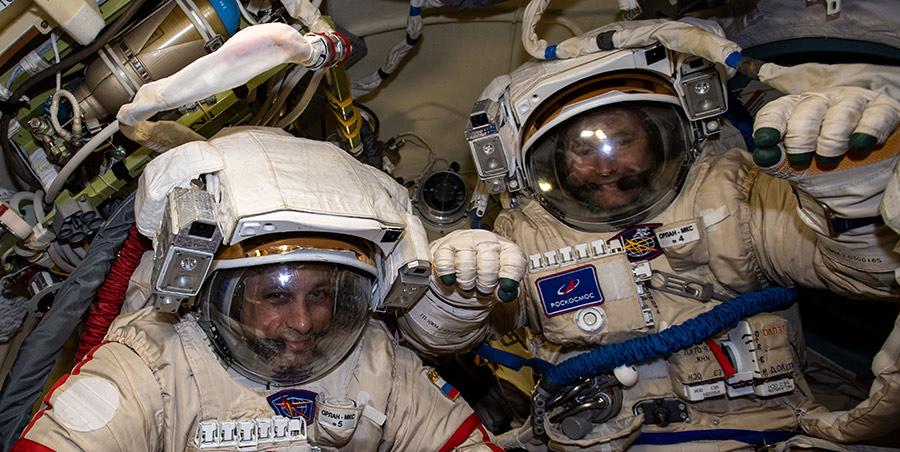Commander and flight engineer of the Russian 66th Expeditionary Force on the International Space Station, Russian Federal Space Agency astronauts Anton Shkaplerov and Pyotr Dubrov completed the 59th spacewalk mission planned by Russia. They officially opened the exit hatch of the Poisk small research module at 20:18 Beijing time on January 19, and closed the exit hatch of the Poisk small research module at 03:29 Beijing time on January 20 to end the mission.

The Russian spacewalk uses The Orlan-ISS 4 and 5 spacesuits. Anton Shkaplerov uses the Orlan-ISS 5 spacesuit, command equipment with red stripes; Pyotr Dubrov uses the Orlan-ISS 4 spacesuit, with blue stripes. The astronauts installed and connected the antenna of the Kurs-P passive rendezvous system on the outer surface of the new Russian module, moved the camera and laid a television cable between the Prichal and Nauka modules. The spacewalk mission lasted 7 hours and 11 minutes, and was originally scheduled to last 6 hours and 40 minutes.
This is the third spacewalk of Anton Shkaplerov's space career, which totaled 21 hours and 39 minutes, and Pyotr Dubrov's fourth spacewalk, which reached a total of 29 hours and 49 minutes.
Through this spacewalk, the Prichal node module was integrated into the Russian section of the International Space Station, which is ready for the docking of manned and cargo spacecraft. The first docking spacecraft, the Soyuz MS-21 manned spacecraft, will dock with the module on March 18 with the crew of Russian Federal Space Agency's 67th Expeditionary Force astronauts Oleg Artmiev, Dennis Matwiev and Sergei Korsakov.
Progress-MS-UM is close to the International Space Station
Progress M-UM successfully docked with the International Space Station
The Prichal Node Module is a universal node module designed and manufactured by RSC Energia that increases the technical and operational capabilities of the Russian part of the Isis. The Prichal Node Module is a spherical sealed compartment consisting of a body and a set of satellite systems, including a device control system, radio equipment, a system to ensure thermal status, a device that provides gas components, a device that controls movement and navigation, an oil delivery device, an active hybrid docking system, a passive hybrid docking system. Prichal has six docking ports, one for docking with cargo and manned spacecraft, one for docking with the International Space Station, and four other docking ports for the installation of additional modules. To transport Prichal to the International Space Station, Russia used a specially customized progressive cargo spacecraft delivery, which was combined with the node module to form Progress-MS-UM, which docked with the International Space Station on November 26, 2021.